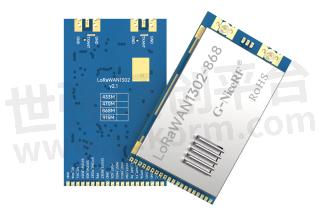LoRa126X Series LoRa Modules: Designed Specifically for the Internet of Things
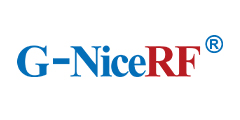
The LoRa1262 is a series of LoRa front-end modules developed by NiceRF Wireless for IoT applications, utilizing Semtech's SX1262 and SX1268 chips. This series features a compact size, low power consumption, and high sensitivity. It is produced and tested in strict compliance with lead-free processes, meeting RoHS and REACH environmental standards. Additionally, the LoRa1262 series has obtained international certifications, including CE and FCC.
LoRa126X Series Models
The LoRa126X series LoRa Modules include four products, covering operating frequencies of 433/490/868/915MHz. Among them, the LoRa1268 can be customized for frequencies ranging from 410-810MHz, and the LoRa1262 can be customized for frequencies ranging from 150-960MHz. Notably, the LoRa1262-868 is CE certified, and the LoRa1262-915 is FCC certified.
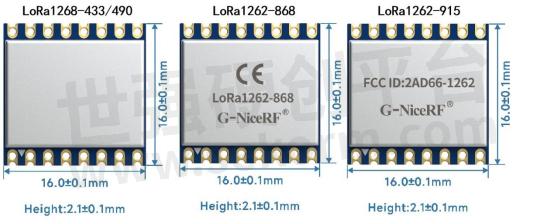
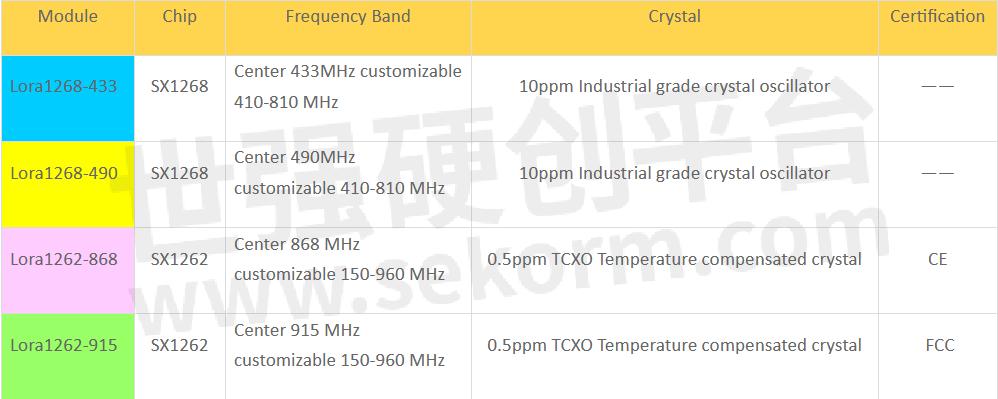
Uses LoRa spread spectrum chips
The LoRa126X modules use Semtech's SX1262 and SX1268 chips, which employ LoRa spread spectrum and frequency hopping modulation technology. Their communication range and reception sensitivity far exceed those of existing FSK and GFSK modulation technologies. Multiple transmission signals can share the same channel without interference, providing excellent anti-interference capabilities.
High performance in a compact size
The LoRa126X series module is a high-performance LoRa long-range transmission module featuring a compact size, ultra-low receiving current, and sleep current. It has a built-in 64KHz crystal oscillator that can wake up the microcontroller in low-power mode. The module's antenna switch can be controlled by the module's internal chip, saving external MCU resources. The LoRa126X module, with its compact size and 160mW output power, achieves a receiving sensitivity of -148dBm under LoRa modulation, providing a significant advantage for battery-powered applications.
Low Power Consumption Design
The LoRa126X has two power management modes for receiving current: LDO and DC-DC. In DC-DC mode, the minimum receiving current is 4.2mA for FSK modulation with 4.8 kb/s data transmission. For LoRa modulation with a 125 kHz signal bandwidth at 1.8V, the receiving current is 8.2mA. There are minor variations in the receiving current for both LoRa and FSK modulation under the Boosted setting.
Similarly, in LDO mode, the receiving current is minimized for FSK modulation. With Boosted improvements, the receiving current for LoRa modulation with a 125 kHz signal bandwidth is 10.1mA.
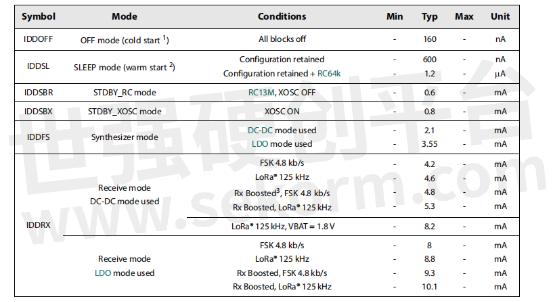
Can be used as a gateway node
The SX126X series modules can serve as LoRaWAN gateway nodes, capable of building LoRaWAN systems with NiceRF's LoRaWAN1302 and LoRaWAN1303 gateway modules. LoRa gateways collect messages transmitted by LoRa nodes and forward these messages to LoRaWAN servers, enabling communication from devices to the cloud.
Features:
Frequency Range:433/490/868/915MHz (customizable150-960MHz)
Sensitivity:-148dBm @Lora
Maximum output power:22dBm(160mW)
Industrial grade high precision crystal oscillator
Lora,(G)FSK
256 bytes FiFo
Data transfer rate:
0.6-300Kbps@FSK
0.018-62.5Kbps@Lora
Application scenarios
This series of modules, with its low power consumption, combined with 100mW transmission power and compact size, is suitable for IoT applications such as remote meter reading, remote control, remote telemetry, and more
- +1 Like
- Add to Favorites
Recommend
- G-NiceRF LoRa Backscatter Device LoRa1276-C1 Provides Long-Range Communication with Low-Power
- G-NiceRF LoRa1121 Module Newly Released: Enables Multi-Band Compatibility and Satellite Communication Functionality
- G-NiceRF‘s FCC Certified Products for Wireless Transceiver Module: LoRa1276-915, RF2401PRO, RF2401F20, RF4463PRO
- DEMO kit tutorial of LoRa module LoRa1262
- G-NiceRF’s New LoRa Spread Spectrum Modulation SOC Wireless Module LoRa-STM32WLE5 with Built-in ARM and Industrial Grade Crystal Oscillator
- What is the RSSI Function of LoRa Module
- How to Choose 2.4GHz Transmitter and Receiver Module LoRa1280 & RF2401Pro
- LoRa1276-C1 Wireless Module with Output Power of 100mW is Suitable for Industrial Applications, Has Obtained FCC, IC, and CE certifications
This document is provided by Sekorm Platform for VIP exclusive service. The copyright is owned by Sekorm. Without authorization, any medias, websites or individual are not allowed to reprint. When authorizing the reprint, the link of www.sekorm.com must be indicated.

